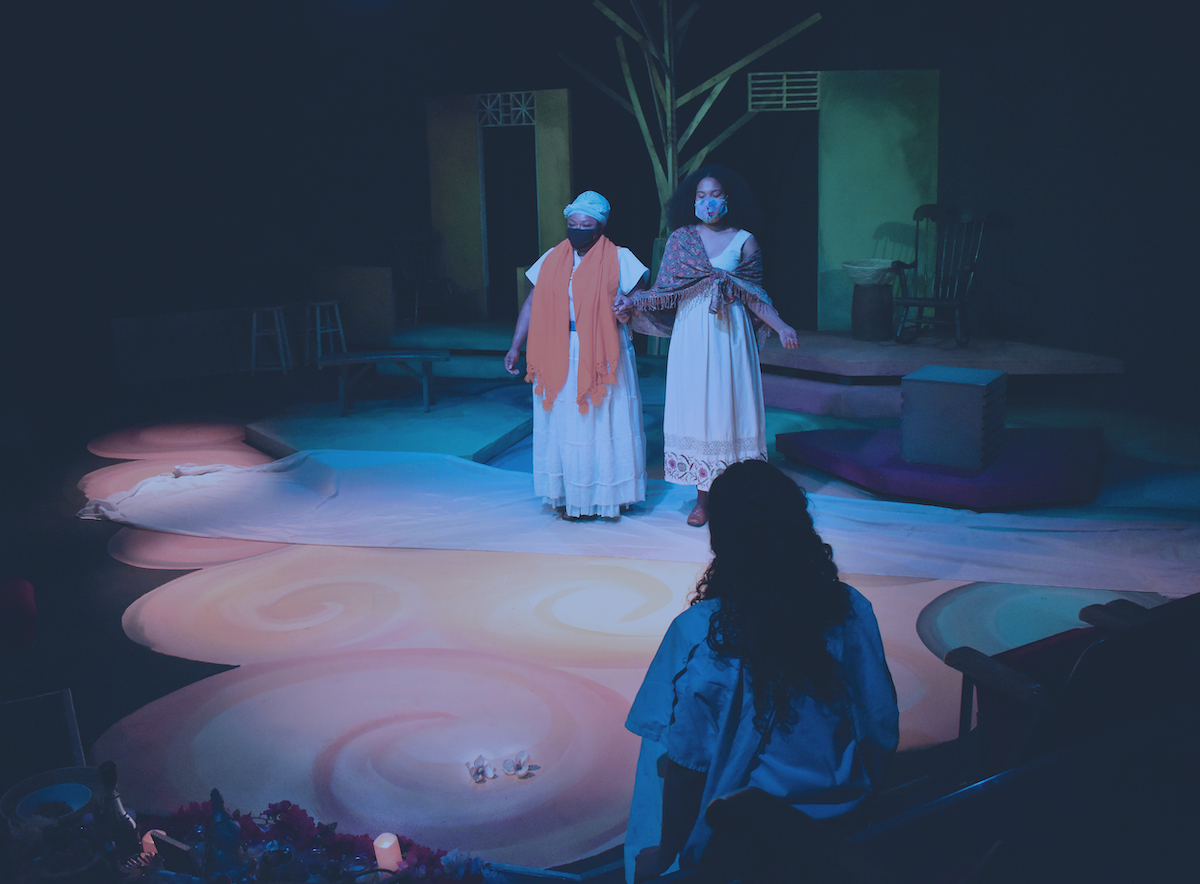History is written by the victors—an adage which often seems to ring true. Whether you agree with this statement or not, there are most definitely stories throughout history which go untold.
Portland-based Milagro Theatre’s current production, City Without Altar, tells one such story. The play, which runs May 13–28, details the events of the Parsley Massacre, which occurred in the Dominican Republic in 1937.
Despite the importance of the event in both Haitian and Dominican history, the tragedy is under discussed outside of the country where it happened. Si Mon’ Emmett—the San Francisco-based theater educator, actor, arts activist and director of City Without Altar—admitted that she herself wasn’t aware of the event until she read the script for the play.

“I did not know [about the massacre] at all, and that is such a common experience for people,” Emmett said. “Anyone who has asked, ‘What is City Without Altar?’…I explain to them the Parsley Massacre of 1937. They have no idea that this is something that happened.”
The Parsley Massacre happened on the border of the Dominican Republic and Haiti on Oct. 2, 1937. Although tensions existed between Dominicans and Haitians before 1937, the border was more of a formality, and the lives of both peoples were closely intertwined.
This ended in 1937, when Dominican dictator Rafael Trujillo demanded that his troops kill Haitians—and Dominicans of Haitian descent.
According to the San Francisco Bay View, “any person who was dark-skinned or ‘looked’ Haitian, who could not pronounce ‘perejil’ (Spanish for parsley) was killed.”
Armed with machetes to maintain the facade that Dominican farmers were driving out Haitian cattle thieves, Dominican soldiers killed thousands of Haitian men, women and children in a genocide which lasted up to eight days.
The author of City Without Altar, Jasminne Mendez, highlighted the importance of bringing light to the event.
“One of the most important things is for people to tell their stories and not let those stories be silenced or suppressed,” Mendez said.
Emmett, the play’s director, added that even in the region where it occurred, the story is still suppressed.
“It is a moment of history that has been brushed under the rug,” Emmett said. “Even in the Dominican Republic where it happened, it is not talked about. There is no tangible commemoration of what has happened.”
Intentional or not, Emmett said ignorance of the event underscored the need to bring it to light.
“[The lack of acknowledgment] speaks to the urgency and need for this play [City Without Altar] to happen here and to happen now,” Emmett said.
Emmett became personally involved in the project in 2021, when she was invited to direct a Zoom reading of City Without Altar. In late 2021, Milagro Theatre decided to move forward with a full production of the play, and asked Emmett to return to direct it. With a clear vision of the story she wanted to tell, Emmett took the job.
Milagro Theatre, which staged the production, has a rich story of its own. The theater company was started by José Eduardo González y Salazar and Dañel Malán, in 1984. In 1989, González created the Hispanic Cultural Festival, and in 1992, the Theatre dedicated itself solely to producing Hispanic works of theater, art and culture—a mission that it remains dedicated to today.
Milagro’s commitment to making space for Portland’s vibrant and beautiful Latinx community makes it an ideal platform to tell the story of City Without Altar. In addition to raising awareness of this hidden tragedy, it also recounts the stories of the Haitians and celebrates their lives in this great cultural center. Mendez said that this is an essential part of the play’s mission.

“[We try] to not only remember [one’s ancestors] by their traumas and their grief,” she said. “But to remember the wonderful, beautiful lives that they lived—the whole lives that they lived.”
Emmett similarly acknowledged this aspect of the production.
“That is the point of this work—to say their names [and] to acknowledge and celebrate the life that was in this community, so that we don’t forget,” she said. “So that we remember the importance of…building an altar; to ask what happened, why did this happen, how do we move forward and how do we begin to heal.”
Altars play a significant role in the meaning of the play. While they have different uses across cultures and religions, in the Latinx community, altars are most commonly built for Día de Los Muertos, or Day of the Dead. The purpose of an altar in many Latinx cultures is to honor and celebrate the lives of one’s ancestors and loved ones who have passed away.
In City Without Altar, the symbol of the altar speaks to the tone and purpose of the show. Besides providing education, the production also honors and celebrates the lives of those killed and affected by the Parsley Massacre.
“We are telling the story of lives of people, and we are bringing into this space the act of creating our own altar of this stage being our offering—of this story being our offering,” Emmett said. “Being able to do that as an artist…is very fulfilling.”
Emmanuel Kyei-Baffour, a D.C.-based actor who plays a part in the play, also emphasized the need to keep memories alive.
“One way to keep [those that have passed on] alive, and to honor them, is to remember them,” Kyei-Baffour said. “To say their names and tell their stories. And this [production of City Without Altar] is an opportunity to do all those things. I hope people will keep that in mind.”






